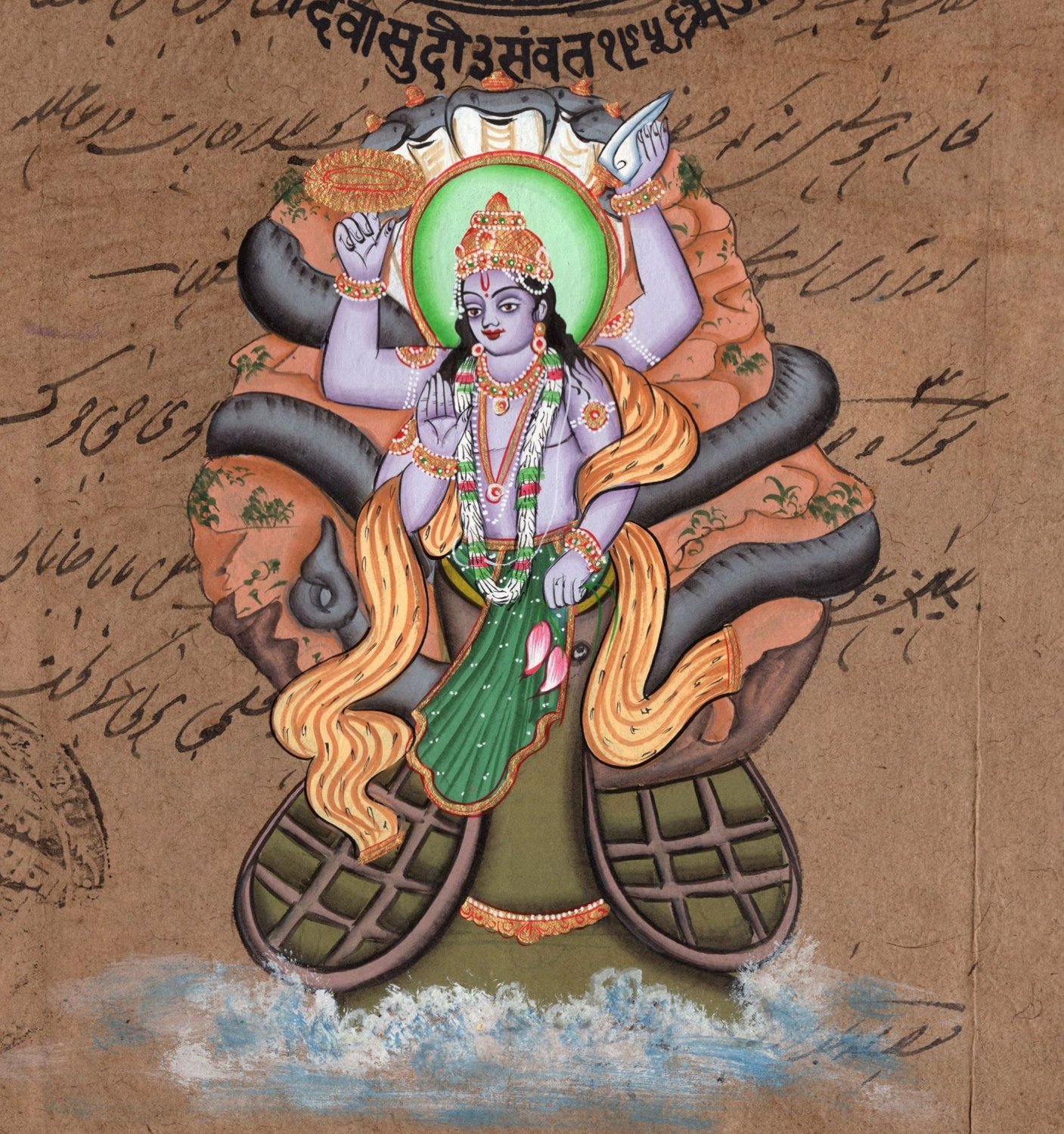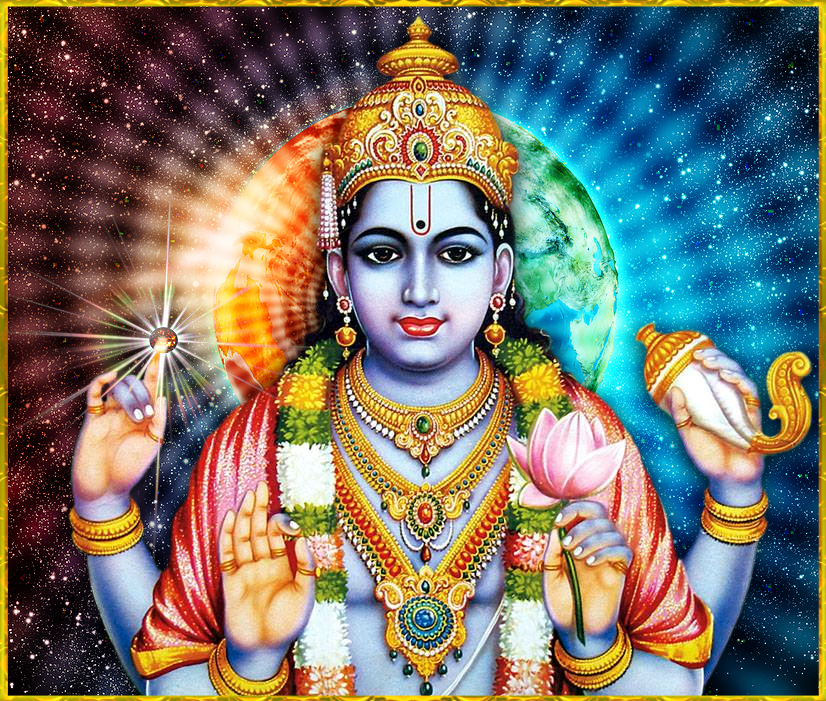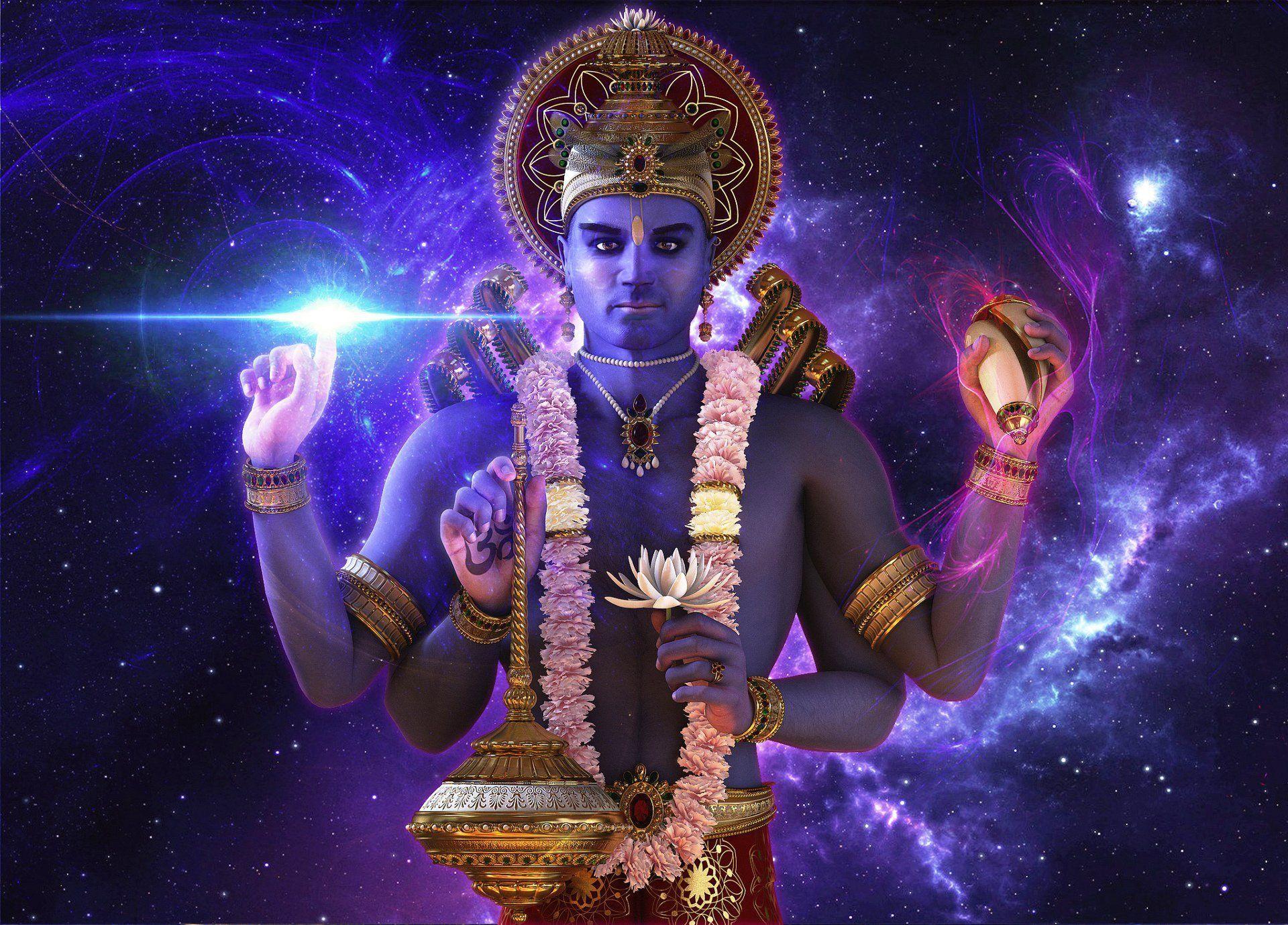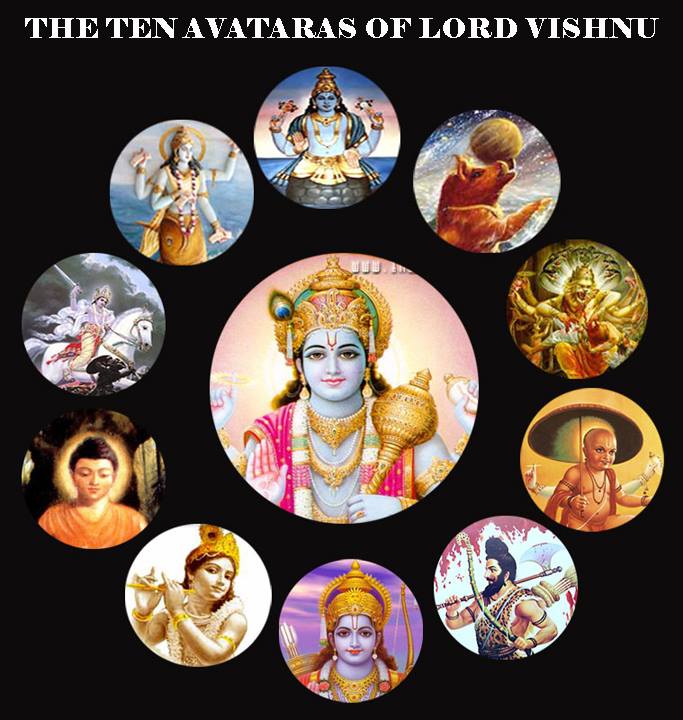Lord Vishnu and His Ten Avatars Levitating Monkey
Matsya, Kurma, Varaha, Narasimha, Vamana, Parashurama, Rama, Krishna, Buddha, and Kalki are the most popular and widely known 10 avatars of Vishnu, and they feature in many Puranas. The Shiva Purana mentions Balarama as the 8th Avatar in its list. Let us know more about the 10 avatars of Vishnu. 1. Matsya Avatar

Hindu Mythology Lord Vishnu Lord vishnu wallpapers, Lord ganesha paintings, Krishna avatar
Hayagriva ( Sanskrit: हयग्रीव IAST hayagrīva, lit. 'horse-necked one') is a Hindu deity, the horse-headed avatar of Vishnu. The purpose of this incarnation was to slay a danava also named Hayagriva (A descendant of Kashyapa and Danu), who had the neck of a horse and the body of a human. [2] Iconography Hayagriva in Khajuraho Lakshamana Temple

Hindu Kurma Vishnu Second Avatar Painting Handmade Indian Deity Watercolor Art
In fact, Vishnu has a total of ten distinct avatars, referred to as dasavatara. While it is common for Hindu gods to have avatar forms, none are as numerous and well-known as Vishnu's avatars. In this article, we will learn about who Vishnu is and who his 10 avatars are. Who is Vishnu?
Vishnu Avatar Images God HD Wallpapers
As per Vishnu Puran, to stop evil people and finish adharma, Vishnu Ji took avatars . The 4 Yugas Avatars here means the 9 incarnations of Vishnu ji in each yuga. Moving forward, lets us know about the incarnations of God Vishnu Ji. God Vishnu Ji's avatars in each yuga

Dream of Vishnu by FeigArt on DeviantArt Vishnu, Hindu art, Krishna painting
Vishnu Avatar list Dashavatara order based on many Puranas is Matsya, Kurma, Varaha, Narasimha, Vamana, Parashurama, Rama, Krishna, Buddha, and Kalki. The Shiva Purana has Balarama on the list as the 8th Avatar - Matsya, Kurma, Varaha, Narasimha, Vamana, Parashurama, Rama, Balarama, Krishna, and Kalki. 1. Matsya Avatar

Secrets of Beings The Avatars of Vishnu HuffPost
The names of 24 avatars of Lord Vishnu are Adi Purusha, Sanat Kumara, Varaha Avatar, Narada, Nara-Narayana, Kapila, Dattatreya, Yajna, Rishabha, Prithu, Matsya, Kurma, Dhanvantari, Mohini, Narasimha, Hayagriva, Vamana, Parashurama, Vyasa, Shree Rama, Balarama, Shree Krishna, Buddha, and Kalki. Table of Contents: The 24 Avatars of Lord Vishnu: 1.
Dasavatara Pictures 10 Incarnations Lord Vishnu
Hayagreeva avatar - incarnation with horse face. Vamana avatar - incarnation as a dwarf. Parshurama avatar. Vyas avatar - Veda Vyasa incarnation. Sri Rama avatar. Balarama avatar. Sri Krishna avatar. Buddha avatar. Kalki avatar - Lord Vishnu will be incarnated as Kalki at the end of the Kaliyuga.

Vishnu Wallpapers Top Free Vishnu Backgrounds WallpaperAccess
Mohini ( Sanskrit: मोहिनी, Mohinī) is the Hindu goddess of enchantment. She is the only female avatar of the Hindu god Vishnu. She is portrayed as a femme fatale, an enchantress, who maddens lovers and demons, sometimes leading them to their doom. Mohini is introduced into Hinduism in the narrative epic of the Mahabharata.

Pin on August
24 Vishnu Avatars Here is the complete list of all those 24 avatars of Lord Vishnu and how they were different from each other. (Dashavatara List - 10 avatars of Lord Vishnu) 1. Adi Purush Adi Purush is the first and the primary avatar of Lord Vishnu. Also known as Lord Narayana, he is depicted laying on the curls of a serpent, Adishesha.

Shri Narasimha Dev Ji who is one of the most powerful avatars of Lord Vishnu, (the protector and
Balarama, the elder brother of Krishna. Within the Vaishnavism tradition of Hinduism, four avatars of Vishnu are the most celebrated: Krishna, Rama, Narayama and Vasudeva . Vasudeva, also known as Anakadundubhi, was a king of the Vrishnis, an ancient Vedic Indian clan of the Yadava race.

The Ten Avataras of Lord Vishnu World Hindu News
The 10 Avatars of Lord Vishnu (Dashavatara): 1. Matsya: This is the first incarnation of Lord Vishnu. It happened in the Satya Yuga. In this Avatara, Lord Vishnu appeared in a part-fish and part-man form and saved Manu and seven sages along with other species of animals from the Great Deluge. 2.
52 best Dashavatar images on Pinterest Lord vishnu, Avatar and Krishna
Lord Vishnu is believed to take avatars in order to restore balance and destroy evil in the world. The 10 primary avatars of Vishnu are known as the Dashavatara of vishnu: 1. Matsya Avatar - The Fish. Matsya avatar is depicted as a fish or half-man, half-fish form. He warned Manu about the great flood and helped him save all living beings and.
Matsya Avatar Story Why was Lord Vishnu Born as Matsya Avatar?
Matsya is Vishnu's first avatar. His legend is reminiscent of the tale about Noah's ark. In this form, Vishnu appears as a fish, who reveals himself to the first man, Manu. He warns Manu about a great flood that will occur in seven days and which will destroy all life.

Dashavatar 10 Photographic Print Lord vishnu, Vishnu incarnation, Vishnu dashavatar art
24 Avatars of Vishnu - Complete List, Images and Stories In the Hindu scriptures, it is mentioned that whenever evil triumphs over good, or whenever darkness takes over the light (truth), or unjust rules over justice, then Lord Vishnu will take birth on earth in order to restore Dharma (righteousness).
24 Avatars of Vishnu 24 incarnations of Lord Vishnu HinduPad
The incarnations that Vishnu takes are called avatars. The Hindu scriptures speak of ten avatars. They are thought to have been present in the Satya Yuga (the Golden Age or Age of Truth), when mankind was ruled by gods. Collectively, the avatars of Vishnu are called dasavatara (10 avatars). Each has a different form and purpose.
Sri Vishnu Sahasranama A Remedy That Brings A Thousand and More Benefits Ask Oracle
The avatars of Lord Vishnu appear in the Hindu mythology whenever the cosmos is in crisis or grave danger, typically because the evil has grown stronger and has thrown the cosmos to Imbalance or out of control. The avatar then appears in a material form, to destroy evil and its roots, and restore the cosmic balance between the ever-existent.